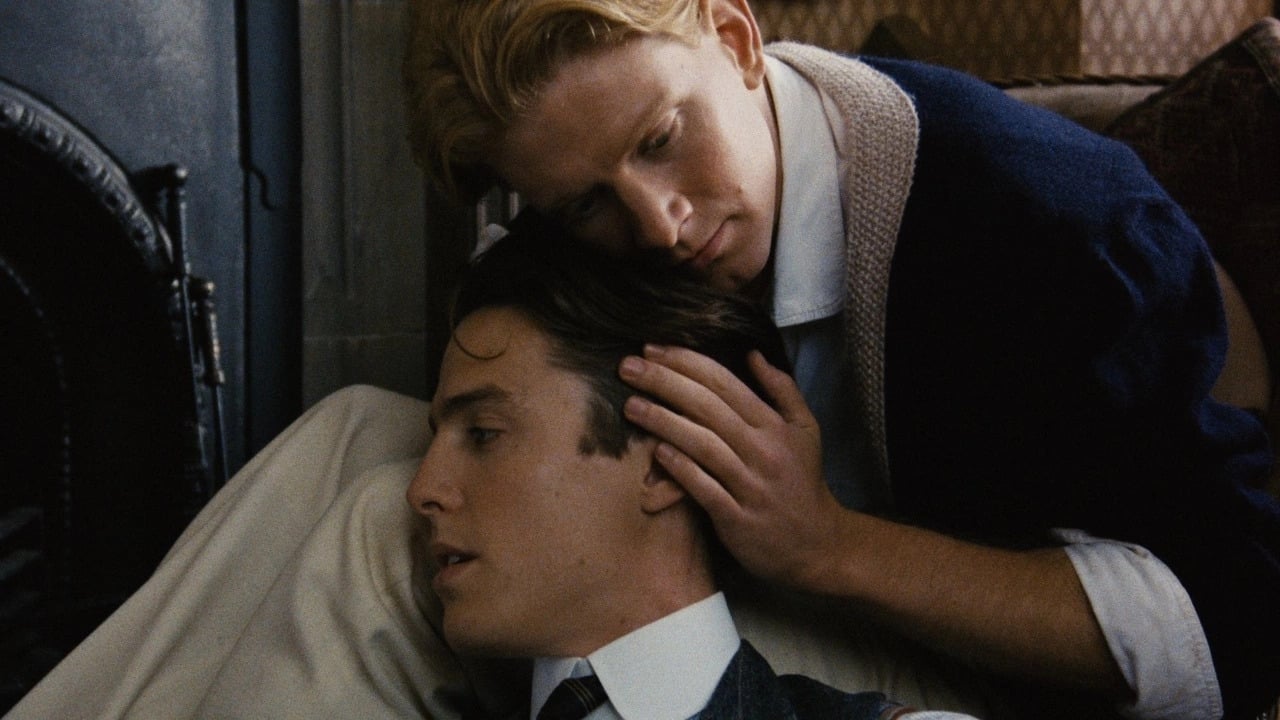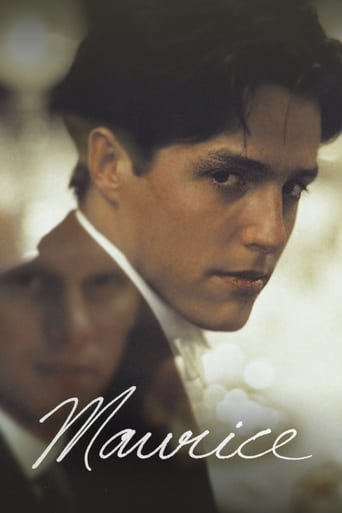

I came upon this movie about six months ago because I am a fan of Rupert Graves (Alec Scudder). I watched the movie online and immediately fell in love with all of the characters. I think they are truly relatable, even Clive can be understood and isn't necessarily the "bad guy." Scudder and Maurice have a surprisingly sweet romance that brings about thoughts of true love; that they can set aside their differences and accept each other is heart warming in its purity and sincerity. I have since read the book, and it has become one of my favorite pieces of literature. It is not only a dynamic and deep plot in its own right, but is visually beautiful and keeps ones attention. I suggest the movie/book to all of my friends who want something different to watch/read!
... View MoreWhile I liked the first half of Maurice, I absolutely sat up with the second portion. If you can make it through the pompous, arrogant and snotty people of the first hour, you're in for a great all-around coming out story.Here's another movie I watched consistently when I was in my young, gay, formable years. Maybe once every 2-3 months. It's slow, yes. It's a period piece film, sure. And it's hard to get through at times but if you can stick through to the end – hell, the second half, it's well worth it.Maybe because, when I was younger, I fell in love with Rupert Graves, due to this movie. Now, I liked his character in this movie, Alec Scudder, but physically Again, this was in my impressionable years when I first started watching this. I even wanted to name my child – if I ever had one: Alec. Love(d) that name.I digress, as I normally do. The movie is set in England, the early 1910s. It's based on an E.M. Forster (of A Room with a View fame) book that was set to be released only after Forster was deceased. (I read this book, by the way and loved it.) Poor Morris (James Wilby and that's how it was pronounced back then;) in his own formable years in "college," he meets Hugh Grant's Clive Durham and they build a solid love affair in a time when someone caught doing homosexual acts could be imprisoned. Mercifully, England, unlike their child, the great U.S. of A., has turned it around since then. In fact, recently, they allow same-sex marriages. Kudos to them for being so advanced!Meanwhile, when another colleague of theirs is, in fact, imprisoned, Clive retreats and wrongfully marries a woman and ditches Maurice. He's distraught, definitely confused and seeks out "change" when he meets the man (of my own dreams following) who will prove to him: NOTHING IS WRONG.This movie helped me through a lot back then. Sure, at the time I first discovered it, it was set in a time eight decades prior, and in another country, but it was absolutely relevant to me and my own story. For, I didn't come out until gays finally started to earn the slightest of respect, in the early 1990s. Me, like Maurice, both didn't understand what was happening to us. No one told me what to expect, if there were others out there like me or if I was right or wrong.Remember: this was all pre-internet.This movie was well-made, had a great score and watching it from beginning to end, it's very touching and reminds me, with every viewing, of my youth. I'm glad I saw it back then, and look forward to seeing it again.
... View MoreFirst of all, I can't believe this movie was made in 1987!This has more passion, emotion and sensuality in it than most romance movies of the 2000's. This bittersweet but tender love story managed to get my attention all along (I didn't even notice that it's longer than an average movie-140 min.) and marvelously get's it's message across without being too explicit. This highly emotional love story is built around three characters and explores the problem of homosexuality in 19th century England. The main character is Maurice Hall,as the title suggests, who comes to terms with his sexuality, when love develops between him and his college best friend, Clive Durham. After rejection, deception and huge efforts to become what is considered "normal", he finally finds comfort in the arms of the Durham household's gamekeeper. Although all the performances were excellent, it was Alec Scudder's character that I found the more interesting. Rupert Graves did an excellent job portraying this rough yet sensitive country boy, who's sincere love for a high class gentleman seems impossible at first. A bit brash, yet charming, this low class lad falls desperately in love with Mr. Durham's (almost) permanent guest, who initially, despite Scudder's numerous signals, doesn't seem to remark his more than obvious affection. His glances, the clumsy conversations, the overjoyed remark that Scudder makes after Mr. Hall's unexpectedly quick return to the estate, as well as the passionate love letters addressed to Maurice after their first "sharing", show the honesty and depth of Scudder's affection, excluding any chance of blackmailing and desire for profit - as both the viewer and Maurice might have suspected. Compared to Clive Durham, who is unable to face his sexuality and hides behind a hollow marriage, Scudder stands as a vivid character, comfortable with who he is,and who's faithfulness and unconditional love manages to win Maurice's heart.
... View MoreGrowing up gay in puritan England circa 1920 could be a very dangerous enterprise, as two young college students discover in this adaptation of E.M. Forster's suppressed, confessional novel. Of course by now it's no secret how the cloistered male community and heady, highbrow atmosphere of England's best public schools drew out "the unspeakable vice of the ancient Greeks" from much of the country's youth, but this isn't the usual timid introduction to homosexual love. Beneath the typically lush Old World settings and handsome period décor is a challenging story of one (sadly, rather bland) young man caught between the law and his libido. Platonic lover Hugh Grant has a much more interesting character; unfortunately, he all but disappears from the script after being frightened by the threat of exposure into a dull heterosexual marriage. It's up to Maurice (pronounced Morris) to carry the torch, in more ways than one, and his coming to terms with an errant (by British law) sexuality is conveyed with literate sympathy.
... View More